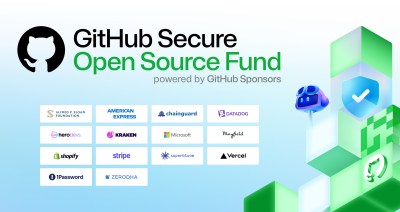GitHub believes that everyone—especially people from underserved and underrepresented communities — should have access to open source and the necessary skills to engage in open source development. To that end, we launched All In for Students to provide open source training, as well as internships and job opportunities. This past year we started to scale the program, with great success. Next year we will grow even more. But first, let’s look back and consider what we’ve learned in the past year.
When we launched the All In for Students pilot in 2021 with 30 students from seven universities, we had designed the program to be intimate, hands-on, and customizable to each student’s needs. Fast forward to today and we have scaled to reach 405 students from 112 universities and colleges across the U.S. Throughout this journey, we’ve learned how to keep this high-impact approach while increasing opportunities for students to dive into open source.
We’re excited to congratulate the 2023 cohort and look to further develop the program to continue growing the next generation of open source leaders.
For our second year of programming, we set out to scale our pilot, skilling 300 students across 26 universities in the U.S. However, we exceeded expectations by introducing 405 students from 112 universities and colleges to open source–that’s 12x the number of students and 16x the number of universities and colleges from the pilot!
As we expanded our university partners, we had students from 22 Historically Black Colleges and Universities (HBCUs), 11 Hispanic Serving Institutions (HSIs), and 16 community colleges. An additional 24% of the students attended a school in which more than half of the student population identified as a person of color.
Despite 80% of the participants having little to no knowledge of GitHub or open source initially, in addition to our curriculum, we successfully hosted hackathons with over 200 registrants collectively, and many students finished with GitHub portfolios that had hundreds of contributions within six months. We also expanded our corporate partners, including Red Hat, Microsoft, GitHub, Cisco, and Intel, with NASA recently joining as a signature partner. Fidelity Investments also made a multi-year commitment as a leading partner to the program.

We are proud to have 55 graduates this year, representing a 130% increase of the number of graduates from last year’s pilot. We held a virtual graduation ceremony that featured keynote industry speakers from Red Hat, Microsoft, and Cisco, and students shared their stories about how the program has impacted their journey in tech. This was an exciting moment to celebrate a new chapter for these students as they venture into the next phase of their careers. If you missed the ceremony, view the recording here.
While we are extremely pleased with the growth of the program, we still have work to do to balance the scale and the impact. With 55 graduates, this means only 13.5% of students who started with us actually completed the coursework. We saw a drop-off in participation later in the program with dozens of students opting not to complete one remaining small task necessary to graduate. This has prompted us to answer the question: how do we help students get across the finish line?
Previously, our extra student support came from university staff. We attribute the majority of the pilot’s success to the close working relationship we had with professors and faculty at each of the universities. In fact, 81% of students who signed up for the program this year said that they signed up at the recommendation of a professor. Meaning, our key stakeholders are university staff. However, with this year’s exponential growth of partner schools paired with an increase in university staffing turnover, we were not prepared to engage as deeply with new students.
Our second biggest takeaway is understanding how to pivot programming during an economic downturn. Not only is resourcing increasingly difficult to come by, but it’s our job to prepare students for the reality that is the tech industry today. At the conclusion of last year’s pilot, there was tremendous excitement from companies to join the All In For Students program as a corporate partner. This year, we started with a waitlist to join, but saw a reduction in participation as layoffs and budget cuts began across the industry and internship programs were significantly reduced. All In for Students was started to help students find successful pathways into tech through paid internships and opportunities. So, it’s important that we find ways to source corporate and organizational partners even during challenging times.
At GitHub, our goal is to skill 5,000 people in the next three years through All In for Students and All In for Maintainers. We’re looking at expansion for All In for Students within the U.S., as well as internationally. And while we’ll be focused on growing, our north star continues to be on the impact we’re able to provide.
In the U.S., we will mobilize to support a growing number of students and universities. Students respond well when they have direct support from a tech industry professional. To do this at scale, we will implement a cohort model where students can receive support within a small group from someone in open source. We will work with our corporate partner employee resource groups to source volunteers and will increase reporting and touchpoints with university partners.
Finally, we can’t lose sight of the original intent of All In for Students, which is to provide a pathway to success in open source for the participants. Right now, we are providing introductory open source skills and experiences, but this upcoming year we will start building out curriculum and projects for students to build portfolios for various job roles. We will survey corporate partners, open source organizations, and communities to gain an understanding of what skills students should be developing, while also making sure that students leverage the power of artificial intelligence (AI) and how it can be used to complement and accelerate their path to success.
- If you are a student or know a student who is eligible and can benefit from All In for Students, send them this link and encourage them to participate.
- If you are a company or organization interested in offering open source opportunities to All In for Students participants, sign up to become a partner.
In collaboration with universities, nonprofit organizations, and private partners, we can advance diversity, equity, and inclusion in this industry together. We can’t wait to see what this next generation of open source leaders will do!




